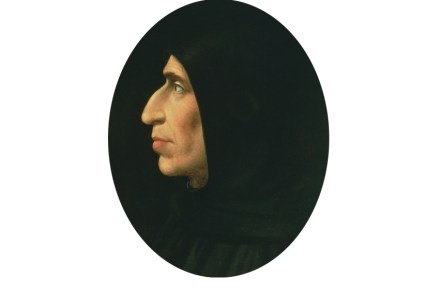A feast of vanities
The name of Savonarola slides off the tongue as if concocted for an orator’s climax. But when it came to names, whether by melody or reputation, the Florence he knew offered aggressive competition. Pico della Mirandola, Lorenzo ‘il Magnifico’ de’ Medici, Botticelli, Michelangelo and Machiavelli all shared his era. In an unexpected and sympathetic conclusion to the radical friar’s latest biography, Donald Weinstein defends one of George Eliot’s least loved novels, Romola: Eliot’s success in bridging the 400-year historical and cultural divide between herself and Savonarolan Florence was remarkable, and her judgment of the Frate himself nuanced and independent. But ‘Savonarolan Florence’, Weinstein contends, has always been a work of




